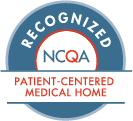Patient’s Rights
Each patient has a right to:
- Receive safe care that respects your confidentiality and your personal privacy, values and beliefs.
- Receive health care services based on your needs without discrimination or favoritism. You have the right to respect regardless of your age, ethnicity, religion, culture, language, physical or mental disability, socioeconomic status, sex, sexual orientation or resources to pay.
- Have a family member (or other representative of your choosing) and your own physician notified promptly of your admission to KSB.
- Know the name of the physician/provider who has primary responsibility for coordinating your care and the names and professional relationships of other physicians and non-physicians who will be involved in your care.
- Receive information and ask questions about your health status, diagnosis, course of treatment, prospects for recovery and outcomes of care (including unanticipated outcomes) in a language you can understand.
- You have the right to effective communication and to participate in the development and implementation of your plan of care and to receive information about the continuity of your care. If you need an interpreter or have special needs, let our staff know. This will be provided to you at no charge.
- Appropriate assessment and management of your pain, information about pain, pain relief measures, and to participate in pain management decisions.
- Be free from restraints and seclusion of any form used as a means of coercion, discipline, convenience or retaliation by staff.
- Request or refuse treatment offered an be informed of any medical consequences of refusing care. However, you do not have the right to demand inappropriate or medically unnecessary treatment or services or to refuse to cooperate with the care necessary for your safety based on the plan of care. You have the right to reasonable responses to any reasonable requests made for service.
- Receive a prompt and safe transfer to the care of others when the hospital is not able to meet your request or need for care or service. You have the right to know why a transfer to another health care facility might be required as well as learning about other options for care. The hospital cannot transfer you to another hospital unless that hospital has agreed to take you.
- Formulate an Advance Health Care Directive (Living Will or Power of Attorney for Healthcare). This includes designating a decision-maker to make health care decisions for you if for any reason you are unable or unwilling to speak for yourself. A decision-maker has the same rights and responsibilities as a patient. KSB providers will comply with these directives to the extent their existence is known and to the extent required by law.
- You have the right to know about hospital policies and procedures.
- Be advised if your health care providers propose to engage in or perform research affecting your care or treatment. You have the right to refuse to participate in such research proposals and any refusal will not jeopardize your access to treatment or services.
- Be informed by the physician or the delegate of the physician, of continuing health care requirements following discharge from the hospital.
- You have the right to be involved in the development and implementation of your discharge plan. Upon your request, a friend or family member may also be provided this information.
- Make decisions regarding your medical care, and receive information about any proposed treatment or procedure in order to give informed consent or to refuse a course of treatment. Except in emergencies, this information shall include a description of the procedure or treatment, the medically significant risks involved in this treatment, alternate courses of treatment or non-treatment and the risks involved in each, and the name of the person who will carry out the procedure or treatment.
- Receive care free from mental, verbal, physical or sexual abuse and neglect, exploitation or harassment.
- You have the right to access protective and advocacy services including notifying government agencies of neglect or abuse.
- You have the right to participate in discussion of ethical issues related to your care.
- You have the right to be told the reason for the presence of any individual. You have the right to have non-health care provider visitors leave prior to an examination and when treatment issues are being discussed. You have the right to restrict non-KSB visitors. You have the right to confidential treatment of all communications and records pertaining to your care and stay in the hospital to the extent required by law. You will receive a separate “Notice of Privacy Practices” that explains your privacy rights in detail and how we may use and disclose your protected health information.
- Designate visitors of your choosing, including a person to be present with you for emotional support during the course of your stay whether or not the visitor is related by blood or marriage. KSB is not permitted to restrict, limit or otherwise deny visitation privileges on the basis of race, color, national origin, religion, sex, gender identity, sexual orientation or disability.
- Request access to an amendment of your medical record.
- Examine and receive an explanation of your bill regardless of the source of payment by contacting Patient Financial Services at (815) 285-8990.
- You have the right to be informed of available resources for resolving disputes, grievances and conflicts regarding your care. To make a complaint about your care, please contact:
Director, Patient Financial Services/Customer Relations
Andrea Cook, CPXP
101 W. First Street
Dixon, IL 61021
(815) 285-5525
If you are unable to resolve your complaint in these manners, contact:
The Illinois Department of Public Health Office of Health Care Regulation
Central Complaint Registry
525 W. Jefferson Street,
Ground Floor
Springfield, IL 62761-0001
1-800-252-4343
Fax: 217-524-8885
TTY hearing impared use only: 1-800-547-0466
Or you may download a Healthcare Facilities Complaint Form at
www.dph.illinois.gov/topics-services/health-care-regulation/complaints
To file a formal service delivery discrimination complaint, you may contact:
US Department of Health & Human Services
200 Independence Avenue, SW
Room 509F, HHH Building
Washington D.C. 20201
1-800-368-1019
800-537-7697 (TDD)
Or you may download a Healthcare Facilities Complaint Form at www.hhs.gov/ocr/office/file/index.htm
Complaints must be filed within 180 days of the date of alleged discrimination.
Patient’s Responsibilities
Each patient has a responsibility to:
- Follow KSB Hospital’s rules and regulations.
- Give your physicians and nurses accurate and complete information about your medical history and current condition.
- Report any pain or changes in your condition promptly.
- Ask questions if you do not understand plan of care or treatment.
- Follow the treatment plan recommended by those responsible for your care.
- Accept personal responsibility if you refuse or do not follow your treatment plan.
- Be considerate of staff, other patients, visitors and hospital rules.
- Inform and provide the hospital a copy of any Advance Directives you have completed.
- Provide insurance information and assume financial obligation for services rendered.
- Keep track of personal possessions; limit the amount of money you keep with you and inform the nurse of money, jewelry, or any other valuables that need to be placed in the safe.




